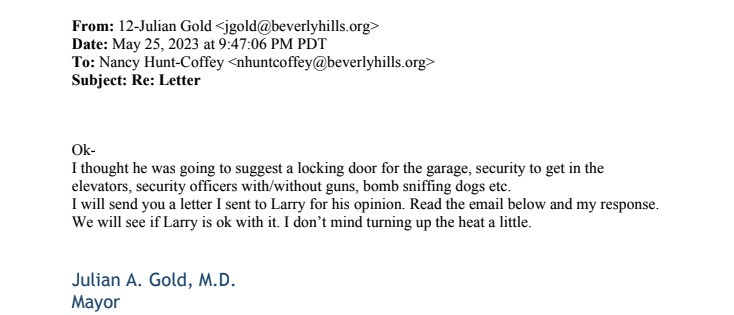New Abortion Clinics Are Being Forced to File Lawsuits to Open Their Doors…in California
The saga of one abortion provider shows how difficult it can be to open new clinics, even in states that have protected abortion rights.
AbortionPolitics
In June 2022, after Roe v. Wade was overturned, Beverly Hills lit its city hall pink. California Governor Gavin Newsom (D) has long spoken of his desire to make California a safe-haven for abortion seekers and has signed bills to protect the legal rights of both patients and providers. In April, when the Arizona Supreme Court upheld an 1864 abortion ban, Newsom said he supported legislation to allow Arizona abortion providers to treat their patients in the Golden State. So it’s pretty shocking that a Washington D.C.-based abortion provider that wanted to open a new clinic in Beverly Hills had to resort to suing both its landlord and the city after claiming that city officials conspired with anti-abortion activists to cancel its lease in June 2023. It’s unclear if the clinic will ever open.
Now, as court hearings begin in the case, CalMatters has published emails showing officials discussing the all-trimester clinic in critical terms and setting up multiple meetings with anti-abortion activists.
DuPont signed a lease in September 2022 and spent millions renovating a suite in a Wilshire Boulevard medical building so it could serve Californians who need abortions later in pregnancy, as well as people from around the country who can’t get appointments at clinics, or get turned away because they’re too far along, which is increasingly happening as more abortion bans take effect. The clinic said in its lawsuits that it chose liberal Beverly Hills for their second location because they thought the city would be welcoming.
Instead, anti-abortion activists waged a highly public campaign to try and block DuPont from opening its doors. During a protest on April 10, 2023, the offensively named Survivors of the Abortion Holocaust projected the words “MURDER MILL” onto the side of the building. (Another medical provider in the building offers abortions, but only advertises procedures through 13 weeks of pregnancy.) At a Beverly Hills city council meeting a week later, three opponents urged the city to intervene or else it would develop a “reputation of condoning murder.” One activist, Tasha Barker, a Sacramento woman leading a group called Stop DuPont Clinic, said by phone, “I am asking you to consider how extreme this clinic is, pause the approval of their building permits and place this issue on the agenda for the next city council meeting.”
During the April 18 council meeting, City Manager Nancy Hunt-Coffey sent the council more information about DuPont Clinic, according to emails obtained via public records request by Beverly Hills for Choice, a group of residents who support the clinic. (BH for Choice also shared the emails with Jezebel.) Hunt-Coffey wrote that DuPont offers abortions after 26 weeks and said those are sometimes referred to as “late-term” abortions, though that is medically inaccurate terminology used by anti-abortion activists. She added: “Late-term abortion clinics can be the focus of protests, rallies and unfortunately other more violent actions on occasion.” Ten minutes later, Councilmember Sharona Nazarian (D) responded to Hunt-Coffey, asking, “How did this get through?” She replied, “Well, it’s a private business renting space in a private building. We don’t have anything in our code that prevents it…”
Barker of Stop DuPont emailed Nazarian the next morning to request a meeting, saying it was “quite offensive to the community of Beverly Hills” that DuPont chose it for their clinic. (Sacramento, where Barker lives, is nearly 400 miles away from Beverly Hills.) Nazarian responded that she was open to learning more. Emails show that a meeting with Barker, the city attorney Larry Wiener, and local law enforcement was scheduled for May 19, 2023, but it’s not clear what was discussed.
-

-

-

-

-

-

-

-

-

-

-

-

-

-

-

-

-

-

-

-

-

-

-

-

-

-

-

-

-

-

-

-

-

-

-

-

-

-

-

-









































